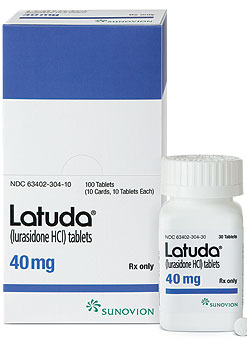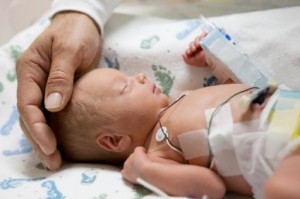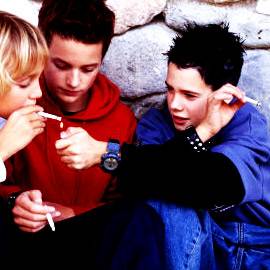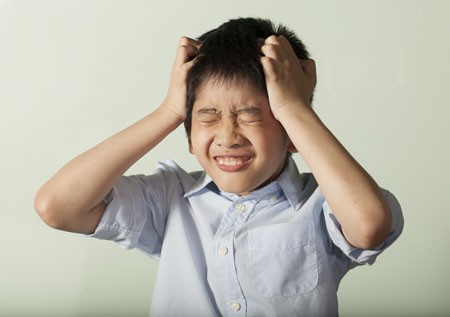Children Who Are Bullied Have Poorer Mental Health
A 2017 study of twins between the ages of 11 and 16 found that being bullied around age 11 caused anxiety, depression, hyperactivity and impulsivity, inattention, and conduct problems, some of which lasted for years. Participants recorded their experiences with physical or verbal bullying, social manipulation, and property attacks (trying to break one’s belongings, for example).
The effects of bullying decreased over time. The bullied children were still significantly more anxious than their non-bullied twins two years later, but this difference faded by the five-year mark. However, paranoid thoughts and cognitive disorganization did persist for 5 years.
The twin study design helped researchers zone in on the causal effect bullying might have on the children’s mental health, rather than other factors the twins shared, such as genetics or family environment. The study included 11,108 twins born in England and Wales.
The research by Timothy Singham and colleagues was published in the journal JAMA Psychiatry. Interestingly, the researchers found that prior mental health difficulties increased children’s likelihood of being bullied, such that being bullied could be considered a symptom of preexisting vulnerabilities. Singham and colleagues suggest that in addition to interventions to reduce bullying and address familial factors that might make children susceptible to bullying, children should also be taught resilience skills.
FDA Approves Lurasidone for Bipolar Depression in Children and Adolescents
 In March 2018, the US Food and Drug Administration approved the antipsychotic drug lurasidone (Latuda) for the treatment of bipolar depression in children and adolescents aged 10–17 years. Lurasidone was already approved for adults with bipolar depression, as an add-on treatment to the mood stabilizers lithium and valproate, and for schizophrenia in people aged 13 years and up.
In March 2018, the US Food and Drug Administration approved the antipsychotic drug lurasidone (Latuda) for the treatment of bipolar depression in children and adolescents aged 10–17 years. Lurasidone was already approved for adults with bipolar depression, as an add-on treatment to the mood stabilizers lithium and valproate, and for schizophrenia in people aged 13 years and up.
A 6-week clinical trial in 347 youth compared lurasidone (in doses ranging from 20 to 80 mg/day) to placebo and found that those who received lurasidone showed significant improvements in depression compared to those who received placebo. The average dose was below 40 mg/day. The research by Melissa P. DelBello and colleagues was published in the Journal of the American Academy of Child and Adolescent Psychiatry in 2017.
In the study, lurasidone was well-tolerated. Side effects included nausea, sleepiness, minimal weight gain, and insomnia. Lurasidone did not seem to affect glucose, triglycerides, cholesterol, or blood pressure.
Editor’s Note: This is the first drug to be approved for bipolar depression in this age range. This editor (Robert M. Post) has written extensively on the high incidence of childhood onset bipolar disorder in the US, and especially in the offspring of parents with bipolar disorder.
It is important to be alert to the possibilities of depression and bipolar disorder in children in the US (along with related illnesses such as anxiety, oppositional defiant disorder, and attention deficit hyperactivity disorder (ADHD)), as early-onset illness tends to have a more severe long-term course than adult-onset depression and bipolar disorder. A longer delay between the emergence of symptoms and the first treatment for bipolar disorder is also a risk factor for more severe depression, more time depressed, and a poorer outcome in adulthood.
Parents of children aged 2-12 who have mood or behavioral problems are encouraged to consider joining the Child Network at our website, bipolarnews.org (click on the tab for the Child Network). By participating in this research network, parents are able to make a weekly rating of the severity of their children’s symptoms of anxiety, depression, ADHD, oppositional behavior, and mania via the secure website. The ratings can then be shared with the child’s clinicians for easy visualization of the course of symptoms over time, which may help with treatment decisions.
Omega-3 Fatty Acids Improve ADHD
 A 2017 systematic review and meta-analysis found that omega-3 fatty acid supplementation improves symptoms of attention-deficit hyperactivity disorder (ADHD) in children and adolescents. The article by Jane Pei-Chen Chang and colleagues in the journal Neuropsychopharmacology identified seven randomized controlled trials in which omega-3 fatty acids improved clinical symptoms of ADHD, and three trials in which omega-3s improved cognitive measures associated with attention.
A 2017 systematic review and meta-analysis found that omega-3 fatty acid supplementation improves symptoms of attention-deficit hyperactivity disorder (ADHD) in children and adolescents. The article by Jane Pei-Chen Chang and colleagues in the journal Neuropsychopharmacology identified seven randomized controlled trials in which omega-3 fatty acids improved clinical symptoms of ADHD, and three trials in which omega-3s improved cognitive measures associated with attention.
The meta-analysis also found that children and adolescents with ADHD have lower than normal levels of the omega-3s DHA and EPA, in addition to lower total levels of omega-3s measured in blood and cheek tissues.
Chang and colleagues suggest that omega-3 fatty acid supplementation is a potentially helpful and largely risk-free treatment option for ADHD in children and adolescents.
Reduced Functional Connectivity of Amygdala Linked to Autism in Pre-School Boys
A 2016 study in the Journal of the American Academy of Child and Adolescent Psychiatry found that preschool-aged boys with autism have weaker functional connectivity of the amygdala than typically-developing children of the same age. Researchers led by Mark D. Shen used resting-state functional connectivity magnetic resonance imaging (MRI) to measure how connected the amygdala was to other regions of the brain in 72 young boys (average age 3.5).
The boys with autism had weaker connectivity between the amygdala and regions linked to social communication, language deficits, and repetitive behaviors. These areas include the medial prefrontal cortex (mPFC), bilateral temporal lobe, striatum, thalamus, cingulate cortex, and cerebellum.
The weaker the connectivity between these regions, the more severe the boys’ autism symptoms were. They showed impairments in overall cognitive ability and both verbal and nonverbal ability.
Evidence-Based Psychotherapies for Young Children
 As many as 7–10% of children under the age of 5 have mood or behavioral problems, and this risk is even higher when a parent has a mood disorder. However, many families are not able to access treatment for these children due to their location, a lack of providers, or insurance problems.
As many as 7–10% of children under the age of 5 have mood or behavioral problems, and this risk is even higher when a parent has a mood disorder. However, many families are not able to access treatment for these children due to their location, a lack of providers, or insurance problems.
A 2016 article by Mary Margaret Gleason and colleagues in the journal Technical Report in Pediatrics summarizes psychotherapeutic treatments for children that are supported with rigorous evidence. Some of these include infant-parent psychotherapy, video feedback for positive parenting, attachment biobehavioral catch-up (or ABC, in which caregivers are taught to re-interpret the signals of children who previously experienced maltreatment, providing nurturing in response), parent-child interaction therapy, and programs that combine parenting support with illness prevention, such as the Incredible Years series (for behavioral difficulties), the New Forest Programme (for attention-deficit hyperactivity disorder or ADHD), and Helping the Noncompliant Child (for oppositional behavior).
Gleason and colleagues suggest that pediatricians should take the lead in assessing young children and recommending appropriate psychotherapeutic approaches.
One resource available to parents is our own Child Network. It consists of an online portal where parents can provide weekly ratings of their children’s symptoms. These can be provided to the child’s physician to facilitate diagnosis and to clinicians to more effectively evaluate the results of treatment. The data provided to the Child Network will in turn help us understand how children are being treated in the community. There a few initial forms to fill out, but the weekly rating process is quick and can provide a great picture of a child’s wellbeing over time, including evaluating the effectiveness of any treatments.
Offspring of Bipolar Parents Have More Psychiatric Illness
 A 2017 study from the Czech Republic found that children and adolescents with at least one parent with bipolar disorder had much higher lifetime rates of mood and anxiety disorders than their peers who did not have a parent with bipolar disorder. The offspring of bipolar parents also had lower quality of life, less social support, poorer self-perception, poorer relationships with their peers and parents, and more difficult home lives than those whose parents did not have bipolar disorder.
A 2017 study from the Czech Republic found that children and adolescents with at least one parent with bipolar disorder had much higher lifetime rates of mood and anxiety disorders than their peers who did not have a parent with bipolar disorder. The offspring of bipolar parents also had lower quality of life, less social support, poorer self-perception, poorer relationships with their peers and parents, and more difficult home lives than those whose parents did not have bipolar disorder.
The study by Michal Goetz and colleagues in the Journal of Child and Adolescent Psychopharmacology reported that 86% of the children of bipolar parents would be diagnosed with a psychiatric disorder in their lifetime. Similarly, David Axelson and colleagues from the Pittsburgh Bipolar Offspring Study reported in the American Journal of Psychiatry in 2015 that 74.2% of children with a parent with bipolar disorder would receive a lifetime psychiatric diagnosis, and a 2006 study by Myrna M. Weissman in the American Journal of Psychiatry found that the offspring of a unipolar depressed parent were three times more likely to have a psychiatric illness than offspring of nondepressed parents over 20 years of follow-up. Another study by this editor (Robert M. Post) and colleagues in the Bipolar Collaborative Network published in the Journal of Affective Disorders in 2016 found that a third of children at high risk due to a parent’s bipolar diagnosis would go on to have a psychiatric illness.
The Goetz study included a total of 86 participants between the ages of 7 and 18. Half had a parent with bipolar disorder and half did not. One limitation of the study was its recruitment procedure. Parents with bipolar disorder who enrolled their children in the study may have done so out of concern for their offspring’s mental health, increasing illness rates in the group with bipolar parents. Researchers were also aware of parents’ diagnoses, which may have affected their ratings of the young people’s symptoms. Despite these limitations, the study and its predecessors still suggest that psychiatric illness in a parent puts children at very high risk for a psychiatric illness themselves and can affect their wellbeing in a variety of ways.
Goetz and colleagues suggest that there is a need for proactive and complex care of families with psychiatric illness. They suggest that good communication is needed between adult and youth psychiatric services, with physicians who treat adults with bipolar disorder inquiring about those patients’ children and referring them to specialized psychiatric services for youth.
Editor’s Note: I not only endorse the conclusions of Goetz and colleagues, but would further recommend that parents with a diagnosis of bipolar disorder or unipolar depression discuss their children’s mood and behavior with their own psychiatrists and the children’s primary care physicians.
Parents of children aged 2 to 12 may enroll in our own Child Network, a secure online portal where they can record weekly ratings of their children’s symptoms and share these with their physicians.
There are many effective psychotherapeutic interventions for children with anxiety and mood disorders that should be sought for a child with symptoms that impair his or her functioning. Two evidence-based treatments are Family Focused Therapy, which incorporates family members into treatment so that they better understand the illness and can be supportive of the affected child, and cognitive behavioral therapy, in which negative patterns of thoughts and behaviors are challenged and patients are taught more effective problem-solving skills. When childhood psychiatric illness is recognized and treated appropriately, the results are often excellent, and it is possible that heading off the illness early may even prevent the development of more severe illness later in the child’s life.
Systematic Review Finds Bupropion is Effective for ADHD in Young People
 A 2016 systematic review by Qin Xiang Ng in the Journal of Child and Adolescent Psychopharmacology found that the antidepressant bupropion (Wellbutrin) can improve attention deficit hyperactivity disorder (ADHD) in children and adolescents.
A 2016 systematic review by Qin Xiang Ng in the Journal of Child and Adolescent Psychopharmacology found that the antidepressant bupropion (Wellbutrin) can improve attention deficit hyperactivity disorder (ADHD) in children and adolescents.
The review identified 25,455 studies of bupropion for ADHD, but only six included children. All six studies showed that bupropion improved ADHD symptoms in children and adolescents. Head-to-head trials of bupropion and methylphenidate (one of the most common medications to treat ADHD, which most people know by the name Ritalin) found the drugs had similar efficacy rates, although a large double-blind, placebo-controlled multicenter study found that bupropion had a smaller effect size than methylphenidate.
In terms of side effects, methylphenidate was more likely to cause headaches than bupropion, but otherwise the drugs were similar.
Ng suggests that bupropion should be considered for the treatment of ADHD in children and adolescents, but more large trials of the drug are needed. Bupropion may also help children whose ADHD appears alongside conduct, substance abuse, or depressive disorders.
Giving Infants Vitamin D Can Reduce Type 1 Diabetes
 A 2001 cohort study in Finland showed that giving vitamin D supplements to infants may reduce their risk for type 1 diabetes. The data for the study, by Elina Hyppönen and colleagues in the journal The Lancet, came from 10,366 people born in 1966. Their mothers were part of a medical registry that collected information on vitamin D given to children during the first year of their lives.
A 2001 cohort study in Finland showed that giving vitamin D supplements to infants may reduce their risk for type 1 diabetes. The data for the study, by Elina Hyppönen and colleagues in the journal The Lancet, came from 10,366 people born in 1966. Their mothers were part of a medical registry that collected information on vitamin D given to children during the first year of their lives.
Of the 10,366 people in Hyppönen’s study, 81 had been diagnosed with type 1 diabetes by the end of 1997. Those participants who were given vitamin D supplements during their first year of life were less likely to be diagnosed with type 1 diabetes than other participants. Those who regularly took the recommended dose at the time, 2000 IU daily, during their first year of life had significantly lower diabetes rates 33 years later.
Early Marijuana Use Linked To Abnormal Brain Function, Low IQ
 A study of depression and marijuana use found that using marijuana before the age of 17 was linked to abnormal brain function and lower IQ. In a 2016 article in the journal Acta Psychiatrica Scandinavica, researcher Elizabeth Osuch and colleagues described a study that compared four categories of youth: frequent pot users with depression, frequent pot users without depression, those with depression who did not use pot, and healthy individuals who did not use pot. The researchers also compared those who began using pot after the age of 17 to those who began earlier.
A study of depression and marijuana use found that using marijuana before the age of 17 was linked to abnormal brain function and lower IQ. In a 2016 article in the journal Acta Psychiatrica Scandinavica, researcher Elizabeth Osuch and colleagues described a study that compared four categories of youth: frequent pot users with depression, frequent pot users without depression, those with depression who did not use pot, and healthy individuals who did not use pot. The researchers also compared those who began using pot after the age of 17 to those who began earlier.
The main findings were that brain function in the areas of reward processing and motor control differed across the four groups. Depression was linked to deficits in brain function. Marijuana use did not correct these deficits, and in some parts of the brain, worsened them.
Those who had used marijuana before the age of 17 had abnormalities in memory, visuo-spatial processing, self-referential activity, and reward processing. Those who had started using marijuana at younger ages also had lower IQ scores.
Only Fluoxetine is More Effective Than Placebo for Children and Adolescents with Depression
 In a meta-analysis published in 2016, researchers Andrea Cipriani, Xinyu Zhou, and colleagues reported that many antidepressants are not effective in children and adolescents. Fluoxetine alone was more effective than placebo. Other antidepressants also caused high study drop-out rates compared to placebo.
In a meta-analysis published in 2016, researchers Andrea Cipriani, Xinyu Zhou, and colleagues reported that many antidepressants are not effective in children and adolescents. Fluoxetine alone was more effective than placebo. Other antidepressants also caused high study drop-out rates compared to placebo.
In an article published in the journal The Lancet, Cipriani, Zhou, and colleagues analyzed 34 randomized, controlled clinical trials of antidepressants in children and adolescents. These trials included a total of 5,260 participants and 14 different antidepressants.
The researchers determined that much of the evidence was of a low quality. Only fluoxetine was statistically significantly more effective than placebo. Fluoxetine was also more tolerable to patients than duloxetine or imipramine. Patients who received imipramine, venlafaxine, or duloxetine were more likely to drop out of studies due to adverse events compared to patients who received placebo.
The authors suggest that prescribing antidepressants to children or adolescents may not necessarily be beneficial, and that fluoxetine is probably the best option to consider.
Editor’s Note: It may be best to use caution when prescribing antidepressants to children or adolescents. First, these data that suggest that many antidepressants are ineffective in young people. In addition, depression in children and adolescents may be a sign of bipolar disorder, and antidepressant use may cause activation or switching into mania in vulnerable patients.
While there is a warning about using antidepressants in young people because of the risk of increased suicidal ideation, the actual suicide rate in young populations decreases when these patients take antidepressants and cognitive behavioral therapy. Psychotherapy should be a high priority. Other safe adjunctive approaches might include omega-3 fatty acids, N-acetylcysteine, vitamin D3, and folic acid. Evidence for the efficacy of rTMS in young people is also positive and growing.



